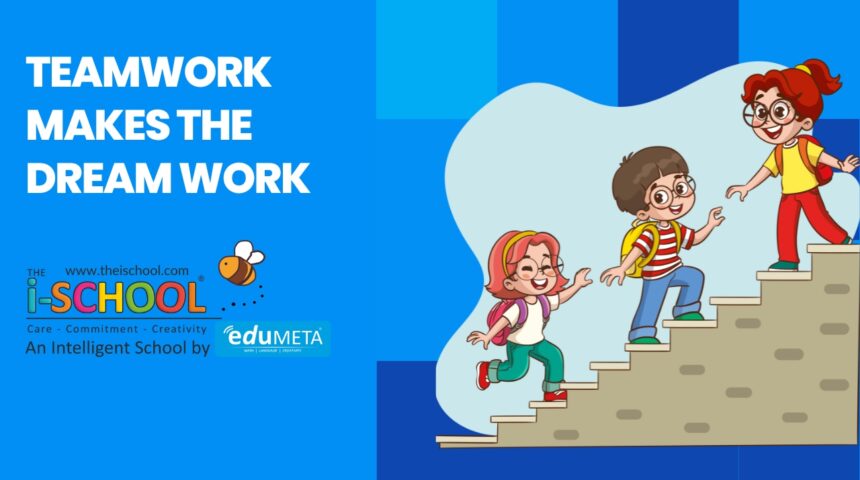Teamwork Makes the Dream Work: Building Bonds & Skills Together!

In today’s world, the importance of teamwork cannot be overstated. Whether it’s in school, on the playground, or at home, children who learn to work together are setting the foundation for future success. At a young age, fostering teamwork not only helps in building strong bonds but also cultivates essential life skills. Here’s why teamwork is a vital part of a child’s development and how it helps them grow into well-rounded individuals.
1. Learning to Collaborate
From a young age, children should be encouraged to work with others. Whether it’s completing a puzzle, building a tower with blocks, or participating in a group project at school, collaboration teaches kids how to communicate effectively, share ideas, and respect different perspectives. Working as a team helps children understand the value of combining strengths to achieve a common goal, a skill that will serve them well throughout their lives.
Tip: Organize group activities at home or in the classroom that require children to work together. This could be as simple as a group art project or a team-based game. Celebrate the success of the group to reinforce the positive outcomes of teamwork.
2. Building Social Bonds
Teamwork is a natural way to build friendships. When children work together, they learn to trust and rely on one another, creating strong social bonds. These bonds are not just about companionship but also about learning empathy, patience, and understanding. As children navigate different personalities within a team, they develop important social skills that help them interact positively with others.
Tip: Encourage children to support each other during team activities. Highlight moments when they show kindness, patience, or helpfulness, reinforcing the idea that being a good teammate is just as important as winning.
3. Developing Problem-Solving Skills
Teamwork often involves solving problems together. Whether it’s figuring out the rules of a game, deciding how to share resources, or working through a disagreement, children learn to think critically and creatively when they work in a team. These problem-solving experiences are crucial for developing resilience and adaptability, as children learn that there is often more than one way to approach a challenge.
Tip: Give children age-appropriate problems to solve as a team. These could range from building something together to figuring out how to clean up a play area efficiently. Encourage them to discuss and brainstorm ideas together, promoting a collaborative approach to problem-solving.
4. Boosting Confidence
When children succeed as part of a team, it boosts their confidence. Knowing that they contributed to a group’s success reinforces their self-worth and motivates them to take on new challenges. Teamwork also teaches children that their efforts matter, even if they are not the leader of the group. This understanding helps build a sense of pride and accomplishment.
Tip: Acknowledge individual contributions within the team, ensuring that each child feels valued for their efforts. This not only builds confidence but also encourages continued participation in future group activities.
5. Preparing for the Future
In life, very few things are achieved in isolation. Whether in the workplace or in personal relationships, teamwork is essential. By learning to work together from an early age, children are better prepared to collaborate effectively in the future. They understand that success often comes from collective effort and that everyone’s contribution is important.
Tip: Discuss examples of teamwork in real life, such as sports teams, community projects, or even family chores. This helps children see how teamwork plays a role in various aspects of life and motivates them to continue developing these skills.
Conclusion
Teamwork is more than just a skill; it’s a mindset that empowers children to achieve great things together. By fostering teamwork in early childhood, we help children build strong social bonds, develop essential life skills, and boost their confidence. As they grow, these experiences will guide them in becoming cooperative, empathetic, and successful individuals who understand that teamwork truly makes the dream work. Encourage your child to engage in team activities and watch as they flourish in a supportive, collaborative environment!
